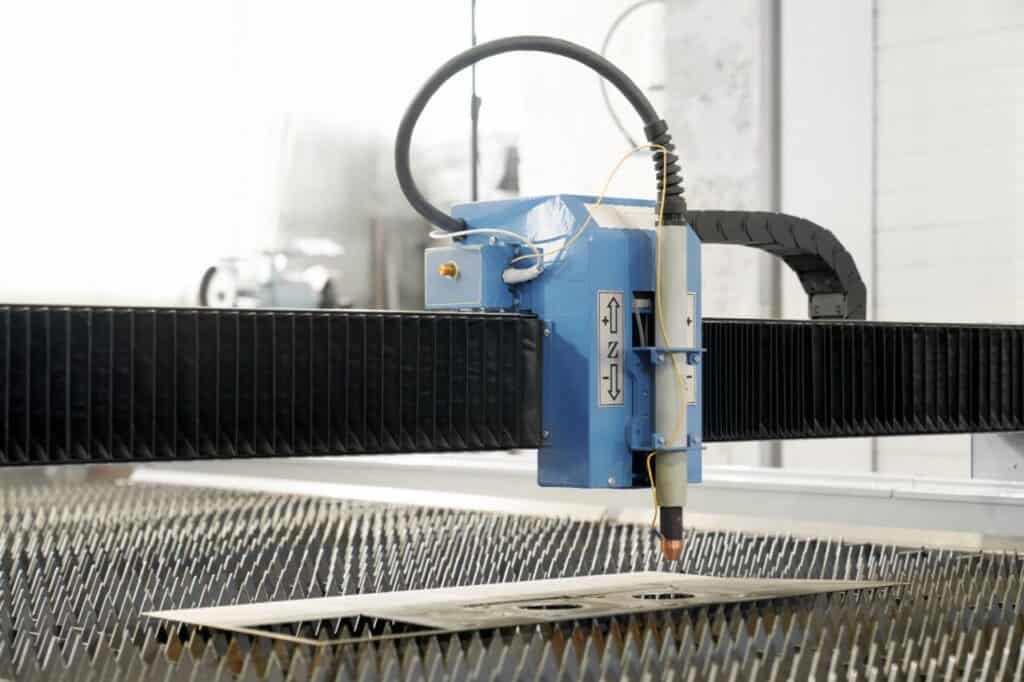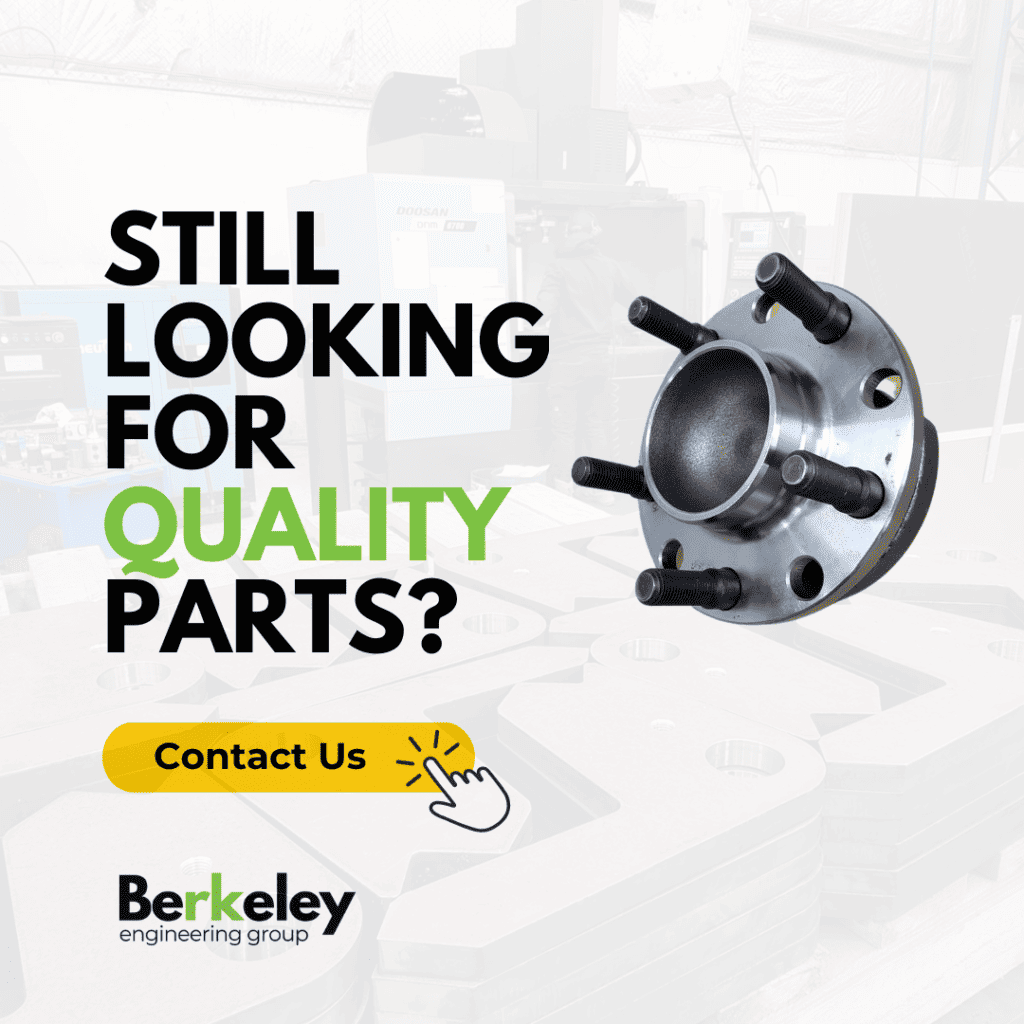
The Future of Metal Fabrication: Automation, AI & Advanced Materials

Metal fabrication in Australia is entering a transformative era. For decades, the industry has relied on skilled labour, proven manufacturing processes, and traditional metals such as mild steel. Today, however, disruptive forces are reshaping how businesses operate, produce, and compete. Automation is streamlining repetitive and physically demanding tasks, artificial intelligence (AI) and digital twins are revolutionising quality control and predictive maintenance, and advanced materials are enhancing durability and sustainability.
Together, these innovations are creating smarter, safer, and more efficient workshops that can adapt to growing market demands. For procurement managers, engineers, and decision-makers, understanding these changes is crucial for staying ahead. This article explores how automation, AI, and advanced materials are shaping the future of metal fabrication in Australia — and what it means for businesses seeking reliability and competitiveness.
Key Takeaways
- Automation is reducing manual labour and improving workplace safety while enabling faster, more precise output.
- AI and digital twins are transforming quality control and data-driven decision-making.
- CNC machines and advanced processes allow manufacturers to achieve complex geometries with high precision and efficiency.
- Advanced materials, including mild steel and alloys, support durability, sustainability, and product innovation.
- Businesses embracing these technologies will realise significant cost savings, enhanced supply chain management, and long-term competitiveness.
Summary Table
| Trend | Impact on Metal Fabrication | Business Advantage |
|---|---|---|
| Automation & Robotics | Reduces repetitive tasks, boosts efficiency, and enhances safety. | Faster turnaround, improved reliability. |
| AI & Digital Twins | Enables predictive maintenance, data analytics, and tighter quality control. | Minimises risk, improves product quality, supports smarter decisions. |
| CNC Machines & Processes | High precision cutting, reduced errors, and flexible production. | Efficiency gains, ability to handle complex designs. |
| Advanced Materials | Stronger, lighter, and more sustainable metal options. | Improved durability, innovation, and sustainability. |
| Business Impacts | Streamlined supply chain and reduced costs. | Stay competitive in the global market. |
The Current State of Metal Fabrication in Australia
Metal fabrication in Australia is a mature yet rapidly evolving industry. Traditionally, workshops across the country have focused on core manufacturing processes such as welding, bending, and cutting — particularly with mild steel, stainless steel, and aluminium. These processes remain central to producing sheet metal products, custom parts, and structural components for industries ranging from construction and mining to automotive and defence.
However, the sector is under increasing pressure to adapt. Global market dynamics, labour shortages, and the demand for higher quality standards are accelerating the adoption of automation and CNC machines. Many fabrication services are already leveraging cutting-edge technology, including laser cutting systems, to achieve precise cutting, improved efficiency, and reduced waste.
At the same time, clients now expect a full range of fabrication solutions that deliver not only high-quality products but also reliability, cost efficiency, and faster turnaround times. This shift is pushing Australian metal fabricators to modernise equipment, streamline production processes, and invest in skills development to remain competitive.
In short, the industry is standing at a crossroads: balancing its legacy of craftsmanship with the need to embrace digital innovation and automation for the future.
The Role of Automation in Modern Fabrication
Automation is redefining the way Australian fabrication companies operate. Once reliant on manual labour and physically demanding tasks, the industry is now integrating automation technologies to improve productivity, reduce errors, and deliver consistent quality. CNC machines, programmable logic controllers, and collaborative robots are taking over repetitive tasks that previously required significant time and effort.
By leveraging automation, workshops can achieve significant cost savings while enhancing efficiency and safety. Automated welding machines, for instance, ensure high precision and reliability, reducing the need for manual intervention and minimising workplace safety risks. Laser cutting technology, paired with CNC controllers, allows for complex geometries and intricate designs to be executed quickly and with remarkable accuracy.
Smart factories are emerging across Australia, combining robotics, data analytics, and digital twins to enable real-time monitoring of manufacturing processes. These systems allow manufacturers to make data-driven decisions, improve operational efficiency, and stay ahead in a competitive market.
For procurement managers and clients, this shift means access to fabrication services that are faster, more reliable, and aligned with modern expectations. Automation isn’t replacing human capabilities — it’s enhancing them, freeing skilled workers to focus on innovation and problem-solving.
Artificial Intelligence and Data Analytics in Fabrication
Artificial intelligence (AI) and data analytics are increasingly shaping the metal fabrication industry in Australia. By applying machine learning algorithms and predictive analytics, fabrication companies can optimise manufacturing processes, identify bottlenecks, and reduce downtime. Predictive maintenance powered by AI, for example, allows equipment to be serviced before failure occurs, improving reliability and reducing unexpected costs.
Digital twins are another innovation gaining traction. These virtual replicas of production processes or entire systems enable manufacturers to test changes, simulate outcomes, and make data-driven decisions without disrupting actual operations. This not only improves operational efficiency but also shortens production timelines, reducing time to market for critical projects.
AI also supports quality control by detecting inconsistencies and anomalies that human eyes might miss. With automated inspection systems, companies can deliver improved product quality while ensuring compliance with industry standards. For procurement managers, this means greater confidence in the consistency and safety of fabricated metal products.
Ultimately, artificial intelligence is not about replacing skilled workers but about augmenting human capabilities. It empowers fabrication businesses to integrate smarter workflows, stay competitive in the global market, and continually improve productivity and innovation.
Advanced Materials and Their Impact
The future of metal fabrication in Australia will be defined not only by automation and AI but also by the adoption of advanced materials. While mild steel remains a staple across many industries, new alloys and composites are enabling manufacturers to achieve high precision, lighter weight, and enhanced durability in their designs. These innovations are especially valuable when creating custom parts or complex geometries that demand both strength and flexibility.
Sustainable practices are also driving material innovation. Manufacturers are exploring recycled metals and eco-friendly alternatives that minimise waste and energy consumption, aligning with the global push toward environmental responsibility. For many businesses, the integration of sustainable materials is not just about compliance but about staying competitive in a market where customers increasingly value green practices.
Advanced materials also play a vital role in product design. They allow for improved performance, better resistance to environmental factors, and increased reliability across various industries—from automotive to aerospace. By embracing these innovations, metal fabrication companies in Australia can improve productivity, deliver improved product quality, and position themselves at the forefront of a rapidly evolving global market.
Robotics, Cobots, and the Future Workforce
Automation in metal fabrication goes beyond machines and CNC controllers—it now includes robotics and collaborative robots (cobots) that work alongside skilled workers. These technologies are revolutionising how fabrication shops manage physically demanding tasks and repetitive tasks that traditionally relied on manual labour. By integrating cobots, companies can reduce workplace safety risks while ensuring high accuracy in production.
For Australia’s metal fabrication industry, the adoption of robotics addresses labour shortages and the growing skills gap. Cobots don’t replace human expertise; rather, they complement it by handling strenuous processes and freeing skilled labour to focus on complex problem-solving and precision work. This human–machine partnership enhances efficiency, reliability, and overall operational efficiency.
Robotics also enable a fast turnaround on projects, with the flexibility to adapt to various industries and production processes. Whether in automotive manufacturing, structural steel fabrication, or custom fabrication, cobots and advanced robotics allow companies to stay competitive while meeting tight specifications and deadlines.
As more businesses leverage automation, a workforce skilled in managing and programming these systems will become crucial to sustaining innovation and growth.
Sustainability and the Global Market Outlook
The future of metal fabrication Australia will also be defined by how well companies adopt sustainable practices while staying competitive in the global market. With governments and industries under pressure to reduce carbon footprints, fabrication shops are being pushed to optimise manufacturing processes, minimise waste, and improve energy efficiency. Initiatives such as recycling raw materials and using advanced cutting techniques like laser cutting not only improve productivity but also reduce environmental impact.
On a global scale, sustainable fabrication has become a vital role in shaping market dynamics. International buyers and supply chain partners are increasingly prioritising companies that demonstrate environmental responsibility while maintaining high precision and quality standards. For Australian fabricators, aligning with these expectations ensures better access to global markets while also meeting local environmental regulations.
Sustainability also extends into workplace safety and reliability. By reducing reliance on manual intervention and introducing automation into hazardous processes, businesses not only protect their workforce but also reinforce their reputation as reliable, forward-thinking partners.
The integration of sustainable practices positions metal fabrication businesses to grow, innovate, and stay ahead in an evolving global landscape.
Final Thoughts
Metal fabrication in Australia is at a turning point, shaped by automation, AI, and sustainable practices. What was once a labour-intensive trade has become a technology-driven industry, powered by CNC machines, collaborative robots, and advanced digital systems. For businesses, this evolution means higher efficiency, improved product quality, and significant cost savings—all while addressing challenges like labour shortages and global competition.
Looking ahead, companies that embrace cutting edge technology, invest in skilled workers, and adopt sustainable practices will stay ahead in the global market. The integration of advanced materials, predictive analytics, and smart factories will ensure Australian fabricators remain leaders in delivering precision, reliability, and innovation.
For procurement managers and decision-makers, the future of metal fabrication is clear: adaptability is not optional—it’s essential for long-term success.
FAQs Answered
1. How is automation changing the metal fabrication industry?
Automation is reducing manual labour by introducing CNC machines, collaborative robots, and AI-driven systems. This improves productivity, ensures high precision, and lowers operational costs while allowing manufacturers to handle complex geometries and repetitive tasks more efficiently.
2. What role does AI play in modern metal fabrication?
AI supports predictive maintenance, data analytics, and digital twins, enabling fabricators to improve product quality and reduce time to market. By making data-driven decisions, businesses can enhance efficiency and stay competitive in the global market.
3. Why is sustainability important in metal fabrication?
Sustainable practices, such as recycling raw materials and optimising production processes, reduce environmental impact while cutting costs. Global buyers increasingly demand eco-conscious suppliers, making sustainability essential for Australian fabricators to remain competitive.
4. How do CNC machines improve fabrication processes?
CNC machines allow precise cutting, bending, and welding of various metals with minimal manual intervention. Their reliability ensures consistent quality, reduces waste, and supports faster production timelines.
5. What future trends will shape the metal fabrication industry in Australia?
Key trends include automation, AI, sustainable practices, and advanced materials. Together, these will transform production processes, improve workplace safety, and strengthen Australia’s position in the global market.
Who are we?
Berkeley Engineering has a rich history of producing high-quality components since 1931. Our CNC machining operations in Australia offer a comprehensive range of services, including CNC turning, metal fabrication, plasma cutting and more. We are dedicated to delivering custom components of the finest quality for your projects. Whether you require low or high volume production, our manufacturing services are cost-effective and efficient, with turnaround times as fast as one business day.
Contact Us:
We'd love to discuss your next project and how our partnered solutions can scale with your business operating needs.


